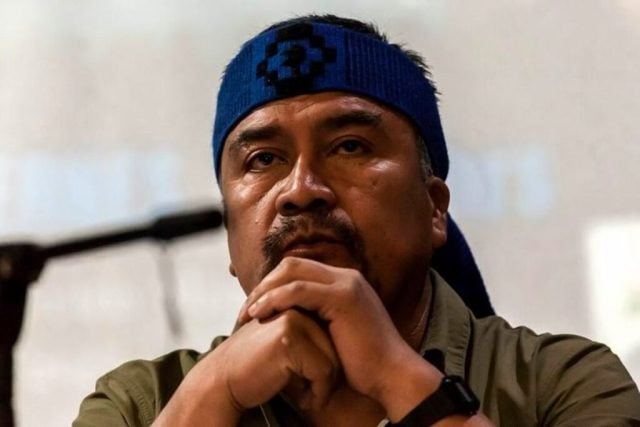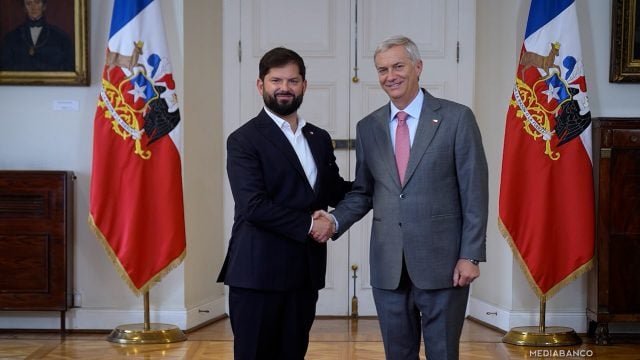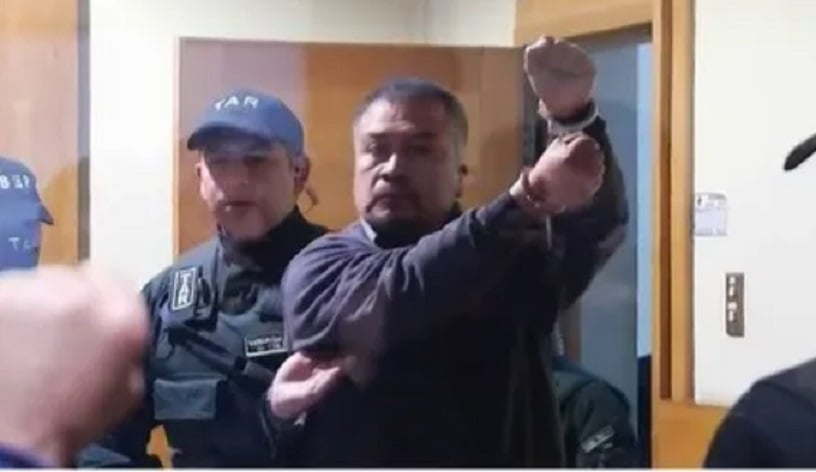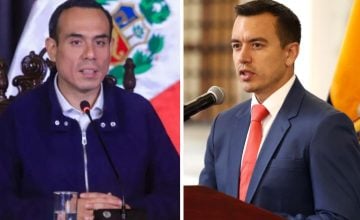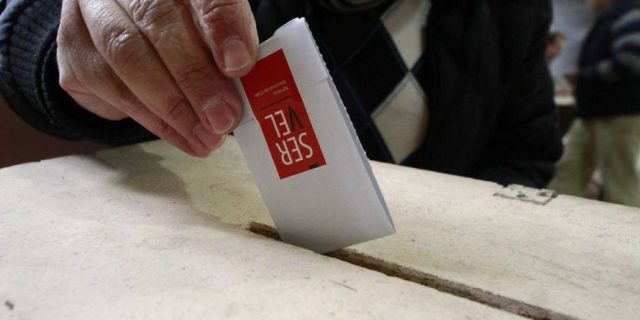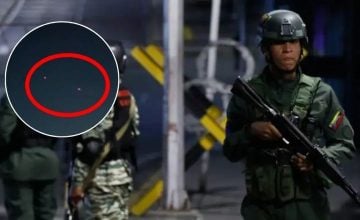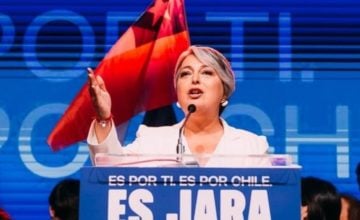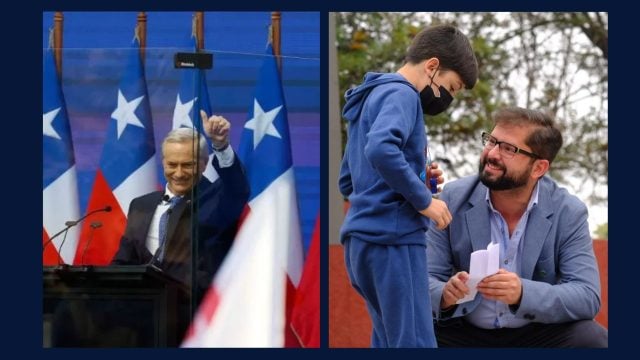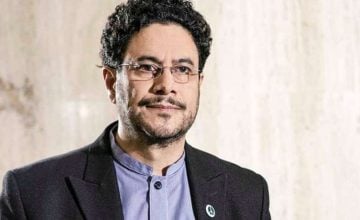Original article: Héctor Llaitul: «Si el próximo Presidente de Chile es alemán, impondrá un sistema de dominación muy cruento contra nuestra nación originaria»
By Andrés Figueroa Cornejo
In an interview conducted from Concepción prison (Biobío Penitentiary), Héctor Llaitul, leader of the Arauco Malleco Coordinator (CAM), currently serving a 23-year sentence under the State Security Law, discussed various pressing issues related to the recent presidential election.
The rise of the far-right with its three presidential candidates, the potential for a pardon, the altered security policies of Boric’s government, as well as insights on the Mapuche resistance movement and perspectives on renewed U.S. intervention in Latin America, are explored in depth by the historic Mapuche spokesperson.
– How do you characterize the far-right offensive and the German presence in Wallmapu, especially given that three right-wing candidates of German descent participated in the presidential election’s first round?
The far-right offensive today has familiar faces, reflecting a collective stance that reasserts a deeply racist and colonial capitalist state. Candidates like Kast, Kaiser, and Matthei, who are descendants of Germans, symbolize this. To understand their impact, one must briefly review the historical presence of Germans in this country, who are now primarily landowners in southern Chile and integral to the dominion over the historic Wallmapu.
The three German candidates, alongside Kast today, not only represent the interests of business elites with guarantees for continued exploitation of our historic Wallmapu, but they also seek to solidify their power through an oppressive system that subjects us to greater colonialism via imposed settlements and community extermination.
– What was that colonial occupation like in Wallmapu?
«Germans, along with other groups of settlers (Italians, New Zealanders, Swiss), established themselves in our ancestral Wallmapu due to state policies after Chilean and Argentine armies violently secured La Araucanía’s occupation around 1881. This ongoing situation represents invasion, genocide, and the political and military occupation of our ancestral territory from Puelmapu to Gulumapu.
Germans gradually occupied the land in a violent (racist) manner. With state assistance, they acquired vast amounts of land and resources that historically belonged to our people and the territorial identity of the Mapuche and Huilliche. Valdivia, Osorno, and Llanquihue became primary areas of German colonization, focusing economically on timber production through deforestation and cultivation, as well as sheep and cattle farming, thus interfering with ancestral lands.
Today, descendants of Germans not only control almost all ancestral Huilliche territories through forestry but also have diverse capitalist investments that undermine our Itrofilmogen (all forms of life) with dairy farms, breweries, and fruit cultivation. These investments reinforce their ideological, cultural, political, and doctrinal dominance aimed fundamentally at exterminating our communities.
We must remember the significance of German enclaves like Colonia Dignidad, a refuge for fascists and Nazis during Pinochet’s military dictatorship, which served as a center for training, torture, and unmitigated human degradation.
German investments in Chile total USD 1.019 billion, as reported by InvestChile. In Wallmapu (mainly in the regions of La Araucanía, Los Ríos, and Los Lagos), their investments reflect a particular private character, a legacy of colonization, where current projects are divided into various sectors that harm and intervene in the territory, often disguised as renewable energy initiatives.
For instance, the German company WPD Chile (based in Bremen, Germany) is involved in wind farm projects in southern regions like Los Lagos and Los Ríos. The Malleco Wind Farm, with a USD 500 million investment and 77 installed turbines, disrupts habitats, impacts fauna, and alters topography, imposed without consultation with the Mapuche communities.
Another example is Green Hydrogen (H2V), where Chile would be a privileged partner for Germany in the National H2V Strategy. While the largest projects are in the southernmost region (Magallanes), our ancestral territory is also deemed crucial for developing the value chain and know-how, as seen in the COMASA H2V Lautaro in Malleco, with a USD 30 million investment. This production demands significant water resources (rivers and lakes), creating waste from the purification process and contaminating soils and aquifers.
In light of this reality and the new colonial aspirations, it is unequivocal that if the next President of Chile is German, they will impose a very brutal system of domination against our indigenous nation and other oppressed groups in Chile.
– During the presidential campaign, the possibility of your pardon was raised by former candidate Eduardo Artés, amidst discussions of pardoning human rights violators. What do you think of such varying proposals, especially now that the upcoming runoff candidates are known?
We can only acknowledge what Professor Artés proposed publicly as a potential pardon in my case. I believe he holds a profound conviction regarding the righteousness of the Mapuche Cause. I publicly appreciate his position because I understand that his suggestion to pardon me extends to all political Mapuche prisoners who are in various prisons (most privatized) and who suffer long and unjust sentences from the Chilean state.
The proposal of a pardon for a Mapuche, even from the same oppressive institutional framework, represents a way to legitimize the clamor of our communities and our People-Nation because it is unjust for Mapuche fighting for their land and culture to be imprisoned. It is also a way to legitimize the call for freedom for political Mapuche prisoners, a demand across the resistance movement and various sectors of the non-Mapuche conscious society.
We observed how Artés politically confronted representatives of the business sector (mainly Germans) who openly called for greater repression, advocating for the shooting of Mapuche resistance expressions. In this context, the far-right made proposals for pardons and more privileges for criminals and human rights violators from Punta Peuco. It is worth noting that these criminals were convicted of crimes against humanity (such as murder, disappearances, torture), which aligns starkly against the just struggle of our people for the recovery of our usurped lands.
A clear distinction must be made. One is committing horrendous crimes to favor the rich and maintain injustices against the oppressed; another is the struggle from the oppressed for justice. The Mapuche struggle is historical, centennial, and continues to resist.
– Security has been a constant issue in the current government and during the presidential campaign. How do you rate the security policies implemented by this government in Wallmapu?
«Boric’s government has treated the Mapuche cause the worst through its security policies, reflected not only in the increased repression against communities but also in unconditional support for economic groups that confront us most forcefully with their extractivist policies; in indiscriminate repression, with the highest number of political Mapuche prisoners, torture, and persecution in prisons, and with militarization throughout Wallmapu.
The current administration has set the conditions for a new far-right government to declare war on the Mapuche Nation. From the state, a strategy is being enforced that reinstates an anti-Mapuche discourse laden with colonialist and outright racist nuances. Nevertheless, our people have shown bravery and dignity, facing this new neofascist offensive looming in the southern cone and will continue to act with integrity and courage as our ancestors did.
– Considering this analysis, how can these security policies represent a reconversion of the national security policies established during Pinochet’s military dictatorship?
Authorities claim to denounce violence, but in practice, it is the state that indiscriminately uses it against mobilized communities, employing the Armed Forces’ power. The current administration creates a platform to impose new security policies that we believe reorganize the national security doctrine stemming from U.S. imperialism to the military dictatorships that ravaged Latin America.
Thus, a broad strategy emerges that gradually calls upon various political sectors of the system, including the Communist Party. One matter is condemning and pursuing organized crime and common delinquency; another is repressing and attempting to exterminate communities that resist the advance of capital in Wallmapu.
– How does the reformed national security policy, instead of targeting organized crime or common delinquency, ensure the criminalization of the Mapuche cause?
The security policies being implemented by the Boric government are rooted in a fascist public order doctrine. This represents another dictatorial legacy that is transferred for ultraconservative sectors to use in their quest to secure the interests of the powerful at any cost.
It was expected that with the current administration, the state would develop a systematic security policy, replacing the doctrine from dictatorship times. However, it has transformed into a policy of criminalization of social and protest manifestations, mainly concerning environmental conflicts and the autonomist Mapuche cause.
It is well-known that the security doctrine systematically violates human rights by the Armed Forces in the context of authoritarian regimes. In this regard, the fundamental letter of the dictatorship had, and still has, as its central axis the participation of the Armed Forces as custodians of an oppressive institution.
The current public security policy entails strengthening the police state, a punitive procedural system, privatized prisons, a National Intelligence Agency (ANI), and greater prerogatives for prosecutors and judges based on information directed by political intelligence, aimed at dismantling resistance expressions and reconstruction efforts that we still maintain in the historic Wallmapu.
The clearest manifestation of this is in the militarization of ancestral territory through a state of exception, draconian laws, racist prosecutors, the demonization of Mapuche people and weichafe, drones, armored vehicles, and an exorbitant number of military and police forces. Therefore, it is almost incomprehensible how the Communist Party and certain left-leaning factions in the Broad Front can support extending the State of Exception.
– What is your opinion on the situation in international waters off Venezuela and U.S. intervention in Latin America?
U.S. strategic interests are entirely incompatible with the continuity of a patriotic and Chavista government like Venezuela’s, hence efforts to prevent its consolidation at all costs. With an interventionist policy, they could not overthrow a legally constituted government. They employed all available internal forces, which proved insufficient. Thus, we transition from interventionism to a genuine declaration of war whose central goal is the military invasion of Venezuela to seize oil and crude reserves.
In fact, this warlike policy of the United States has recently expanded to achieve complete control of the continent. U.S. hegemony is dictated by the IMF and World Bank, the Washington Consensus, and a capitalist accumulation model based primarily on denationalization or forcibly transferring wealth to large American corporations.
In this context, we extend our greatest solidarity to the Venezuelan people and their social and political organizations ready to defend their nation against another U.S. aggression attempt. Since Hugo Chávez and the Bolivarian movement seized power from the Venezuelan oligarchy and negatively impacted U.S. corporate interests, the U.S. increased measures against that government and Venezuelan society in general, resulting in economic blockades and incitement to sedition from the far-right.
Any potential military incursion against Venezuela not only affronts the Venezuelan people but also constitutes a declaration of war against all independent peoples and indigenous nations inhabiting Abya Yala who still resist capitalism. Any militaristic intervention against that exemplary people should unite all conscious and revolutionary forces on the continent, especially those of us who fervently embrace anti-capitalist and anti-imperialist struggles.
Our combative salute from Wallmapu goes to our brother Wayu people, the Pemon people, as well as other descendants of Weichafe and leader Waikapuru.
– Finally, what is the state of the Mapuche movement and resistance amid the fascist offensive?
As we from CAM have consistently stated, the struggle is for the reconstruction of the Mapuche Nation, and in the current phase, our main efforts are focused on establishing a multifaceted resistance process. We must observe that regardless of the victorious cries raised by the far-right and the anti-Mapuche officials concerning ending resistance actions, the Mapuche cause does not stop. On the contrary, it resurfaces with new vigor based on maintaining and projecting ties in territorial and political terms.
The resistance will emerge anew, bolstered by the awareness and commitment of the new generations of weichafe and Newen of the Mapu that will endure forever. Resistance has been rekindled within communities adopting territorial control politics, lof that will not abandon the chosen path of unrelenting struggle against various extractivist projects, especially against forestry and hydroelectric plants, as these continue to dispossess and devastate our sacred territories.
We uphold the continuity of the Mapuche autonomist and revolutionary struggle because investments threaten communities and their demands, because they endanger nature and our ways of life, aiming for the extermination of our Itrofilmogen. This struggle will persevere and will only grow stronger because there remains a movement advocating for autonomy and genuine transformations that restore our Mapuche world in its broadest sense.
The strengthening of our Mapuche Kimun ka Mapuche Rekiduam has enabled a resurgence with much Newen Pu Kona ka Pu Weichafe, ready to give their lives if necessary for the reconstruction of the Mapuche nation.
We do not operate under a winka or Western logic, nor do we act as environmental defenders as the «progressives» term us. We do not consider ourselves social fighters or pragmatic politicians, as described by the constituents, but instead, we fight as Mapuche because we are Mapuche, and every time our Ñuque Mapu, our Lof, and our political prisoners are attacked, there will be a response fueled by the Feyentun and Newen of the Mapu.
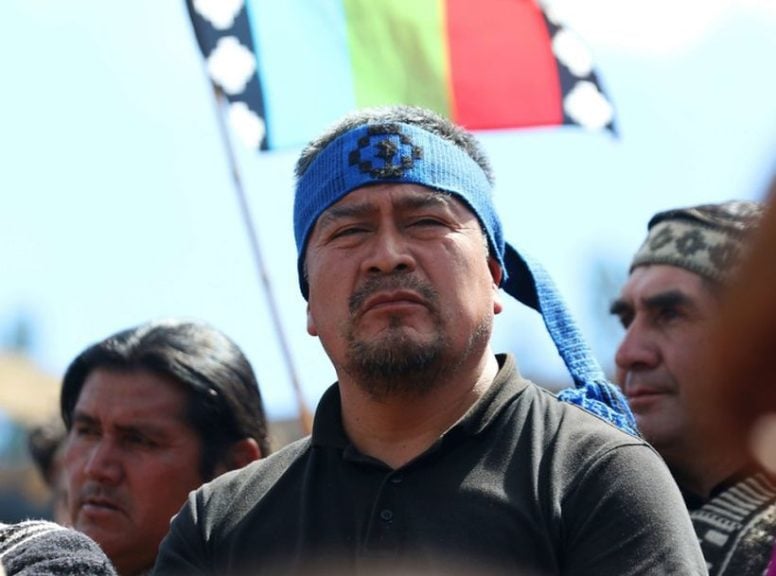
Interview by Andrés Figueroa Cornejo
